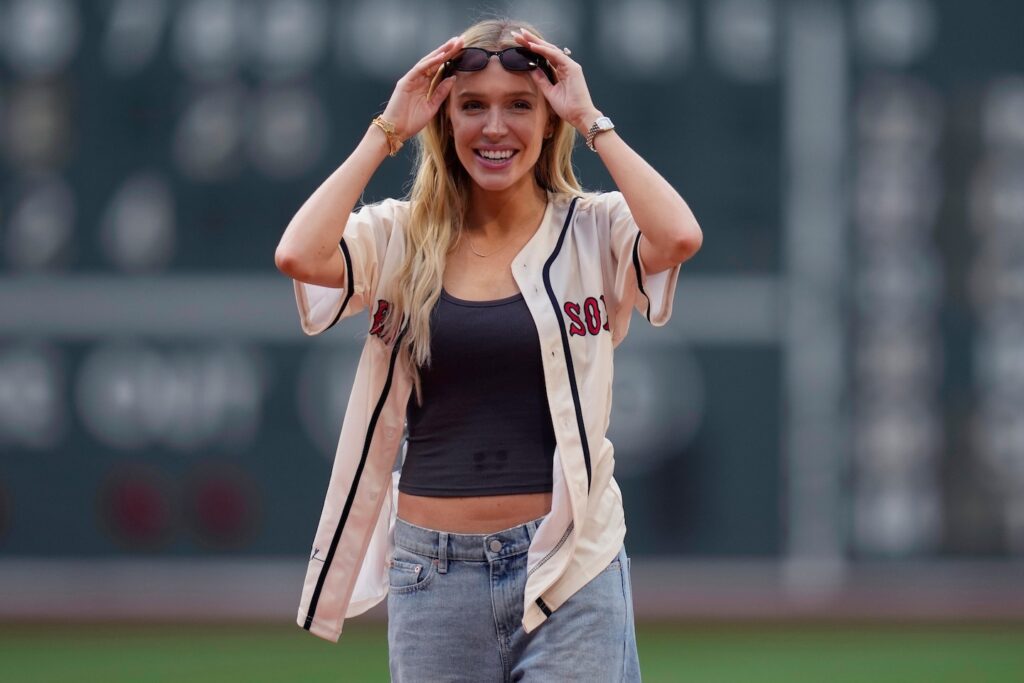Both NBC and Cooper say that's the point.
“It was crazy,” Cooper said in an interview Monday. “That side of the internet has its own language, and I saw the legendary Mike Tirico say 'daddy gang,' and I got a flood of DMs. I thought I was hallucinating. 'Alex, a guy just said 'daddy gang' on national TV.'”
Past Olympics in Tokyo and Beijing, interrupted by the pandemic, failed to captivate American viewers, so NBC is banking heavily on celebrities this year to make the Paris Games feel bigger and restore the event's cultural cachet.
In addition to Cooper, the network is announcing a string of big names: Peyton Manning and Kelly Clarkson will host the opening ceremonies; Kevin Hart and Kenan Thompson will handle the highlights show; Cardi B will handle promotions; and Snoop Dogg will be the track and field correspondent. “They're going to be dipping, sliding, riding, sliding and hopefully not sliding,” he said of the group of runners at the trials.
After the 2022 Olympics, NBC executives ran a series of market research tests and found that about a third of people say celebrities spark conversations with their friends, a finding that's especially notable during the Olympics, when many athletes are less well-known.
Cooper is a celebrity of a different demographic: young women. She started “Call Her Daddy” in 2018 with her then-friend and roommate Sophia Franklin. The podcast began after Cooper's scandalous relationship with a major league baseball player, allegedly Noah Syndergaard, then the ace of the New York Mets, ended. Barstool quickly bought the podcast, which exploded in popularity before the hosts had a falling out and Cooper eventually moved the podcast on its own to Spotify, signing a reported three-year, $60 million deal.
The show has evolved to include guests like Gwyneth Paltrow and Jane Fonda and meditations on mental health, positive thinking and women's empowerment. Last year, it became Spotify's second most popular podcast after Joe Rogan's.
In Paris, Cooper will host several “Watch Alongs” that will air on NBC's streaming service, Peacock, including coverage of U.S. women's soccer games and the all-around gymnastics competition. She'll host celebrities, answer live questions and possibly appear on NBC's social media channels and other NBC shows. She might even tape an episode or two of “Call Her Daddy.”
Molly Solomon, NBC's head of Olympic production, said she first heard about Cooper a few years ago when her daughters introduced her to the podcast. “I wish they hadn't listened to it.” [at the beginning]”Cooper's a great actor,” Solomon joked. Last year, Cooper's agency pitched her to Solomon as an Olympics contributor.
Solomon said the pairing is obvious because the Olympics, unlike most other major sporting events, has a mostly female audience, meaning Cooper's listeners could be both current and future NBC viewers.
“We know that women in their 20s are watching less TV, they're on their phones, they're on social media, they're listening to podcasts,” Solomon said. “How do we turn them into Olympic fans?”
She added: “Alex has an incredible understanding of what young women want to talk about and hear. I think she's this generation's Oprah.”
Cooper also has athletic prowess: She played soccer at Boston University, her father was a sports producer, and she's already done a major interview for NBC with Simone Biles, one of the Olympics' biggest stars and “Call Her Daddy” listeners.
“One of the first things Simone said to me was, 'This is the most exciting interview of my life. I'm so glad to meet you. I'm your biggest fan,'” Cooper said. “I said, 'Hold on, no, I'm your biggest fan.'”
The Olympics are also part of a bigger shift into the mainstream for Cooper: Last year, she launched her own media company, Trending, with her husband, film producer Matt Kaplan. With her exclusive deal with Spotify ending this year, she's in the midst of planning her next move.
“When I think about it [the Olympics] “The purpose of the show is to bring in guests so that young women and their fathers can sit down together and watch my show,” Cooper said.
It's a long way from the early days of “Call Her Daddy,” but that's also the point.
“I think growing up,” Cooper said, “I was very particular about focusing on appealing to young women. [in the beginning]“… I think it’s OK to broaden the conversation and open the door for others to join the conversation.”

